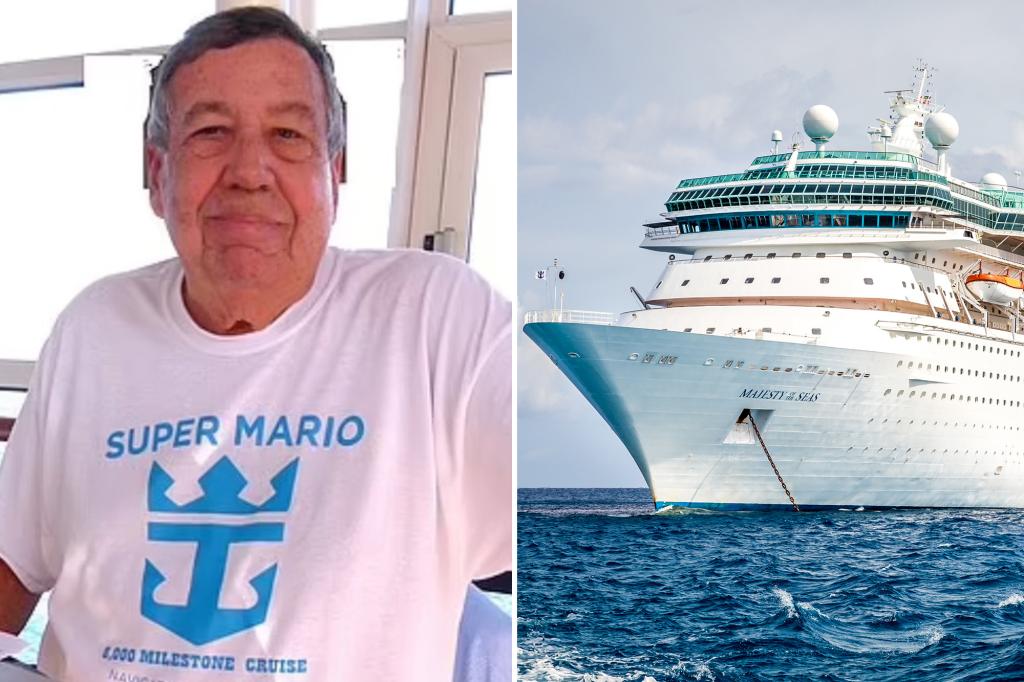Mario Salcedo, a businessman known as “Super Mario” in cruising circles, has spent the last 25 years living aboard cruise ships, accumulating over 1,000 voyages, primarily with Royal Caribbean. This unique lifestyle has led to an unusual side effect: the loss of his “land legs.” He experiences a constant swaying sensation, making it difficult to walk in a straight line on solid ground. This phenomenon, known as Mal de débarquement syndrome (MdDS), is a rare vestibular disorder characterized by the persistent feeling of motion even after disembarking. Salcedo’s adaptation to the constant motion of the ship has resulted in his body becoming so accustomed to the sway that land feels unsteady. He reports feeling more comfortable at sea than on land, a testament to his remarkable adaptation to a life perpetually in motion.
Salcedo’s dedication to the cruising lifestyle is evident in his annual expenditure of approximately $101,000 on voyages. He maintains a relaxed work schedule, dedicating only about five hours a day to his business, allowing him ample time to enjoy the amenities and entertainment offered on board. His recent milestone 1,000th voyage with Royal Caribbean, an 11-night journey on the Explorer of the Sea, further solidified his status as a seasoned cruiser. His long-standing relationship with the cruise line is highlighted by the recognition he receives from captains who are familiar with his presence on board.
Elaine Warren, the founder and CEO of The Family Cruise Companion, provides insight into the physical adjustments associated with long-term cruise living. She emphasizes the difference between short-term vacations and extended stays at sea, highlighting the body’s adaptation to the ship’s continuous movement. While some individuals develop “sea legs,” becoming accustomed to the gentle sway, others, like Salcedo, experience the opposite effect. Stepping onto solid ground after prolonged periods at sea can be disorienting, with the sensation that the land itself is moving. This highlights the significant impact that constant motion can have on the vestibular system.
The phenomenon of “sea legs” versus the disorientation experienced by Salcedo illustrates the varying ways the human body adapts to unusual environments. While some become accustomed to the motion of the sea, finding land unsteady, others maintain their land-based equilibrium, experiencing the sea as constantly moving. This highlights the complex interplay between the vestibular system and the brain’s interpretation of sensory information. Salcedo’s experience underscores the potential for long-term exposure to a specific type of motion to alter one’s perception of stability, leading to challenges when re-entering a different environment.
According to the Cleveland Clinic, MdDS is a rare vestibular disorder characterized by the persistent sensation of rocking or swaying even after leaving a moving environment, such as a ship. While symptoms typically subside within 24 hours, in some cases, they can persist for months or even years. This chronic form of MdDS can significantly impact daily life, causing difficulties with balance, coordination, and concentration. The underlying causes of MdDS are not fully understood, but it is believed to involve dysfunction in the vestibular system, the sensory system responsible for balance and spatial orientation.
Salcedo’s initial foray into the world of cruising began in 1997, marking the beginning of his enduring love affair with life at sea. He attributes his unwavering commitment to cruising to the exceptional treatment he receives, feeling like “royalty” on board. The familiarity and recognition he enjoys from the crew, particularly the captains, contribute to his sense of belonging within the cruise community. His only extended period away from the sea was a 15-month hiatus during the coronavirus pandemic in 2020, a testament to the disruptive impact of the global health crisis on even the most dedicated cruise enthusiasts. This interruption underscores the profound connection Salcedo had cultivated with his life at sea and his eagerness to return as soon as circumstances allowed.















